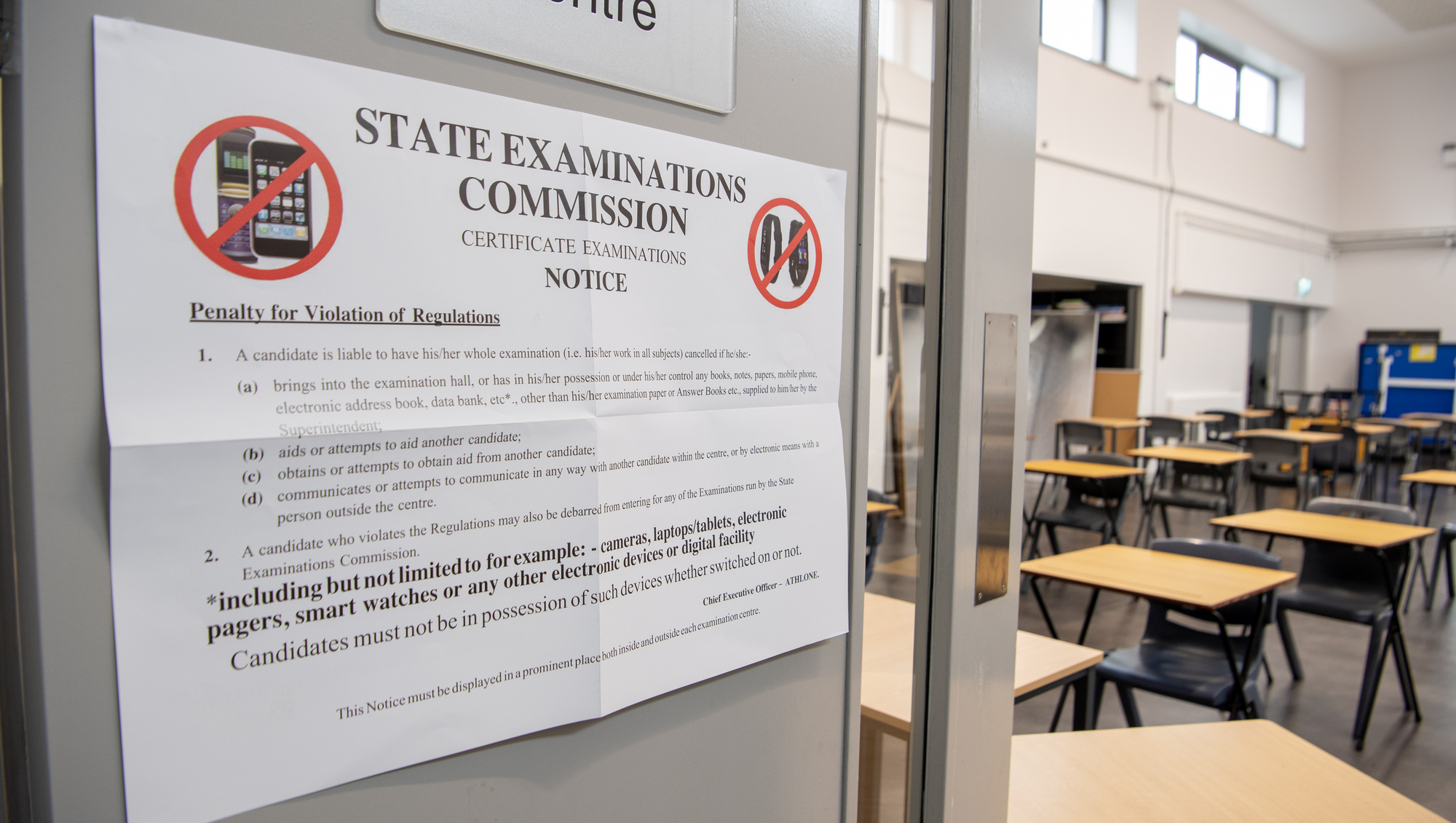Health
Leaving Cert 2025 Signals Gradual Return to Academic Normalcy

The State Examinations Commission (SEC) has initiated a gradual return to pre-pandemic grading standards for the 2025 Leaving Certificate, marking a critical step in addressing the issue of grade inflation that has affected academic assessments since the onset of COVID-19. The commission’s adjustments aim to realign grades closer to those of 2019, after a significant increase in results during 2020 and 2021.
In the years following the pandemic, the SEC implemented measures that artificially inflated grades, a process that continued through to 2024. The results from this year, however, indicate a shift toward moderation, as authorities begin to recalibrate the grading system that had seen a surge in high marks. The SEC intends to avoid a sudden drop in grades, which could lead to discontent among students, educators, and parents alike.
In statements made by Norma Foley, the former education minister, the SEC outlined a phased approach to returning to normalcy. The commission has committed to ensuring that the overall results in 2025 will remain “broadly midway” between the inflated results of 2020 and 2021. It is projected that the overall results will exceed 2019 levels by at least 5.5 percentage points on average.
Adjustments and Grade Distribution
To facilitate this transition, the SEC applied a universal post-marking adjustment to all subjects. This adjustment, which has become a standard practice since 2022, resulted in an average increase of 6.8% to the corrected exam scripts. Notably, around 229,275 grades out of a total of 438,000 were elevated, representing approximately 52% of all grades issued this year.
Despite the overall moderation, the percentage of students receiving top grades remains exceptionally high. For instance, 11.7% of higher-level grades were awarded an H1, which translates to the highest mark for students achieving over 90%. While this figure is a decrease from 14.3% in 2024, it remains significantly higher than the 5.9% recorded in 2019.
The SEC’s chairwoman, Jacinta Stewart, emphasized the importance of transparency in the grading process. She encouraged students to utilize the Candidate Self Service Portal, which will be available from next Tuesday, to view detailed information about their component marks and the effects of the post-marking adjustment.
Implications for College Admissions
As students now await the first round of college place offers from the Central Applications Office (CAO) on the following Wednesday, the implications of this year’s results on CAO cut-off points remain uncertain. The transition back to more normalized grading standards could significantly impact students’ prospects, particularly given the demographic shifts and changing demand for college placements.
The ongoing adjustments reflect an effort to maintain academic standards while avoiding the pitfalls of abrupt changes that could disadvantage current students compared to their peers from 2020 to 2024. As the SEC continues to navigate this complex landscape, the balance between ensuring fairness and restoring academic integrity remains a paramount concern.
The path to returning to a balanced grading system is a challenging one, but the SEC’s cautious approach aims to restore faith in the examination process, ensuring that students receive grades that accurately reflect their abilities without compromising educational standards.
-

 Top Stories3 months ago
Top Stories3 months agoTributes Surge for 9-Year-Old Leon Briody After Cancer Battle
-

 Entertainment4 months ago
Entertainment4 months agoAimee Osbourne Joins Family for Emotional Tribute to Ozzy
-

 Politics4 months ago
Politics4 months agoDanny Healy-Rae Considers Complaint After Altercation with Garda
-

 Top Stories4 months ago
Top Stories4 months agoIreland Enjoys Summer Heat as Hurricane Erin Approaches Atlantic
-

 World5 months ago
World5 months agoHawaii Commemorates 80 Years Since Hiroshima Bombing with Ceremony
-

 Top Stories3 months ago
Top Stories3 months agoNewcastle West Woman Patricia Foley Found Safe After Urgent Search
-

 Top Stories5 months ago
Top Stories5 months agoFianna Fáil TDs Urgently Consider Maire Geoghegan-Quinn for Presidency
-

 World5 months ago
World5 months agoCouple Convicted of Murdering Two-Year-Old Grandson in Wales
-

 World5 months ago
World5 months agoGaza Aid Distribution Tragedy: 20 Killed Amid Ongoing Violence
-

 World5 months ago
World5 months agoAristocrat Constance Marten and Partner Convicted of Infant Murder
-

 Top Stories4 months ago
Top Stories4 months agoClimbing Errigal: A Must-Do Summer Adventure in Donegal
-

 Top Stories4 months ago
Top Stories4 months agoHike Donegal’s Errigal Mountain NOW for Unforgettable Summer Views








